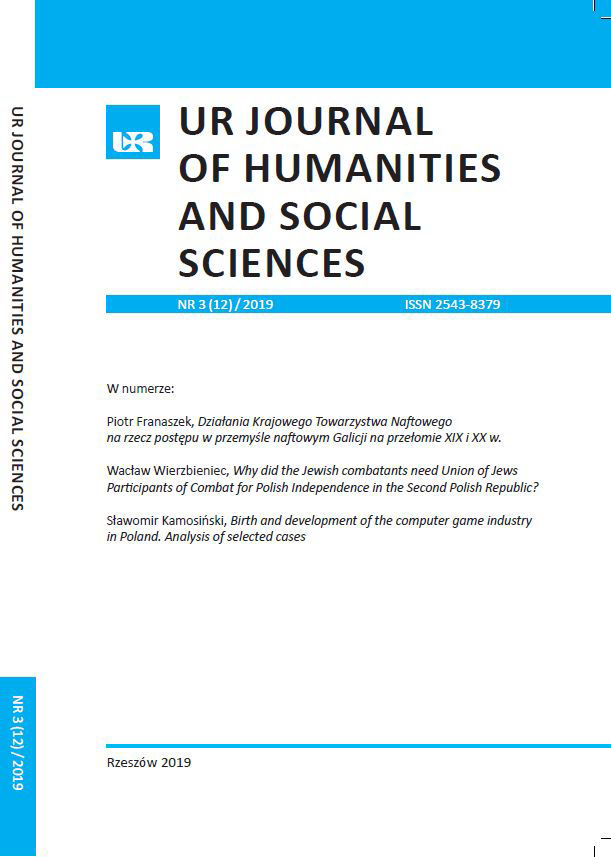Birth and development of the computer game industry in Poland. Analysis of selected cases
DOI:
https://doi.org/10.15584/johass.2019.3.6Keywords:
computer games industry, global market of computer games' products, product innovationAbstract
The first computer game appeared in the period of the People's Republic of Poland in Wrocław in 1962 (or 1963). Then, commercial projects, appeared in the 1980s. Among them there was first adventure game produced in 1986. In the times of the People's Republic manufacturers of computer games were not treated as professional entrepreneurs. The beginnings of the professionally operating computer games industry in Poland can be found at the end of the 1980s. It was related to the popularization of imported personal computers. The first companies representing that sector were set up by some enthusiasts importing computer games for their own needs mainly from the USA. Players analyzed the construction of the games, learned the programming language and attempted to write their own games by themselves and for themselves. They also traded their products on small local markets. After nearly 30 years since the first company was established, acting professionally in the field of computer games and software, one can observe a real progress. Polish companies achieved global success. The main research problem in finding the sources of the success and recreation of the path the sector went through, beginning from amateur activities to thorough professionalization. It should be looked into what impact on that sector of industry had the political situation in Poland in 1989, including the bankruptcy of communism and development of the free market and openness of the economy on the global markets. A product of this industry ages slowly.Downloads
Download data is not yet available.
Downloads
Published
2019-09-30
How to Cite
Kamosiński, S. (2019). Birth and development
of the computer game industry in Poland.
Analysis of selected cases. Journal of Humanities and Social Sciences, 12(3), 101–116. https://doi.org/10.15584/johass.2019.3.6
Issue
Section
Articles
License
Copyright (c) 2019 Wydawnictwo Uniwersytetu Rzeszowskiego

This work is licensed under a Creative Commons Attribution-NonCommercial 4.0 International License.



